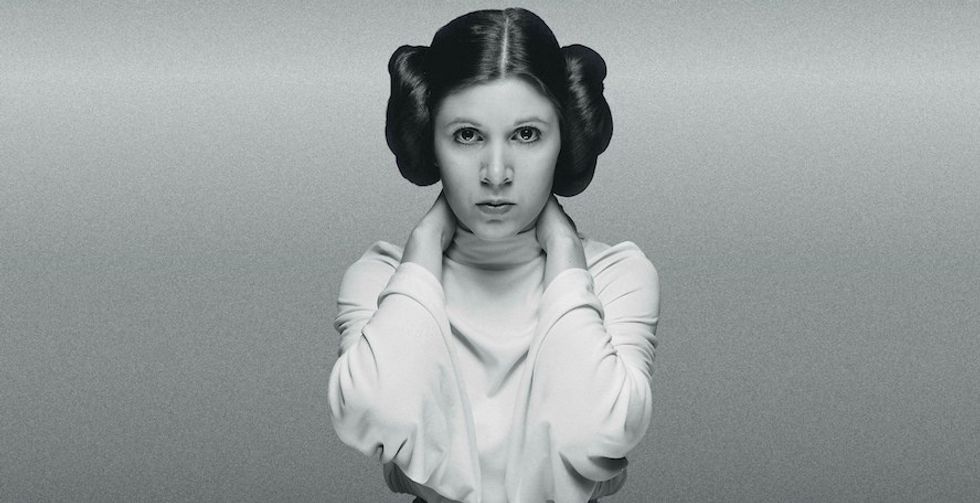As a writer, reader and fiction junkie, I have always loved strong, female role models featured in the media. When I was a little girl, I looked up to the Pevensie sisters, all of the Disney princesses, and of course, every new heroine introduced into the Star Wars universe. I remember the first time I ever watched Star Wars: my family sat down for a meal of cheese grits (which is an odd thing to remember) and I became engrossed in the tale of two boys who traveled with a huge furry animal and a princess who looked great the whole movie but who could still kick butt. To my utter joy, after the credits rolled, I was informed that there were two more of the VHS tapes (which we still own and watch today) that continued the story.
On Tuesday, Dec. 27, just before we wrapped up a year everyone wants to finish as quickly as possible, we lost the first great leading lady in the Star Wars films: Carrie Fisher. She suffered a heart attack while flying from London to Los Angeles last Friday, and passed away at the Ronald Reagan UCLA Medical Center at 8:55 a.m. The mental health activist, author, and actress was 60 years old.
Death is a strange thing. When someone you love dies, it leaves a gaping hole that aches for the person you lost, and it takes a good while for the loss to not feel excruciating anymore. When someone you do not know dies, you're simply noticing their painful, noticeable absence. The thing that has always been the weirdest for me is how quick the change happens. Carrie was updating her Twitter just a few days ago, and now she's no longer here. My condolences and prayers are with her family and friends, and with her fans, because film and literature have an interesting way of helping a regular person feel like they have a particular, individual connection with someone they had never met before. So thank you, Carrie Fisher. You inspired many people of many different ages and sparked a desire for strong, independent, and beautiful women to lead my own stories. Rest in peace, for you will be missed.






















